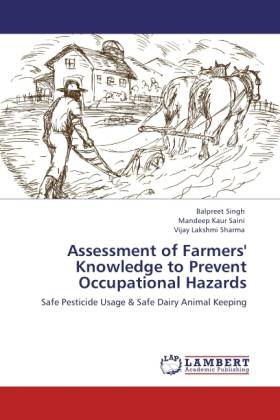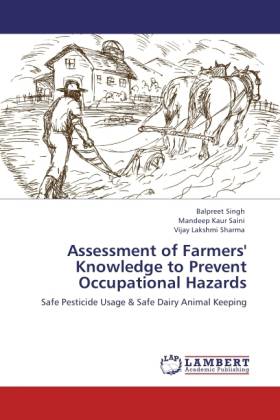
- Afhalen na 1 uur in een winkel met voorraad
- Gratis thuislevering in België vanaf € 30
- Ruim aanbod met 7 miljoen producten
- Afhalen na 1 uur in een winkel met voorraad
- Gratis thuislevering in België vanaf € 30
- Ruim aanbod met 7 miljoen producten
Assessment of Farmers' Knowledge to Prevent Occupational Hazards
Balpreet Singh, Mandeep Kaur Saini, Vijay Lakshmi Sharma
Paperback | Engels
€ 70,45
+ 140 punten
Omschrijving
The interactions between agriculture and health are two-way: agriculture affects health, and health affects agriculture. The process of agricultural production and the outputs it generates can contribute to both good and poor health, among producers as well as the wider population. Agriculture is fundamental for good health through the production of the world s food, fiber and materials for shelter, and in some systems, medicinal plants. Among rural communities it contributes to livelihoods and food security, and provides income which can be spent on health care and prevention. Agriculture is the primary source of livelihood for the majority of the India s rural population who in turn are most vulnerable to ill-health due to occupational risks. Knowledge of farmers about agrochemical use and safe animal keeping is a key to understanding how to take sensible precautions against health exposure. Thus a clear understanding of farmers knowledge about safety issues is central to inform policy makers to develop environmental and health cost reduction strategy.
Specificaties
Betrokkenen
- Auteur(s):
- Uitgeverij:
Inhoud
- Aantal bladzijden:
- 84
- Taal:
- Engels
Eigenschappen
- Productcode (EAN):
- 9783845437514
- Verschijningsdatum:
- 25/08/2011
- Uitvoering:
- Paperback
- Afmetingen:
- 152 mm x 229 mm
- Gewicht:
- 136 g

Alleen bij Standaard Boekhandel
+ 140 punten op je klantenkaart van Standaard Boekhandel
Beoordelingen
We publiceren alleen reviews die voldoen aan de voorwaarden voor reviews. Bekijk onze voorwaarden voor reviews.







